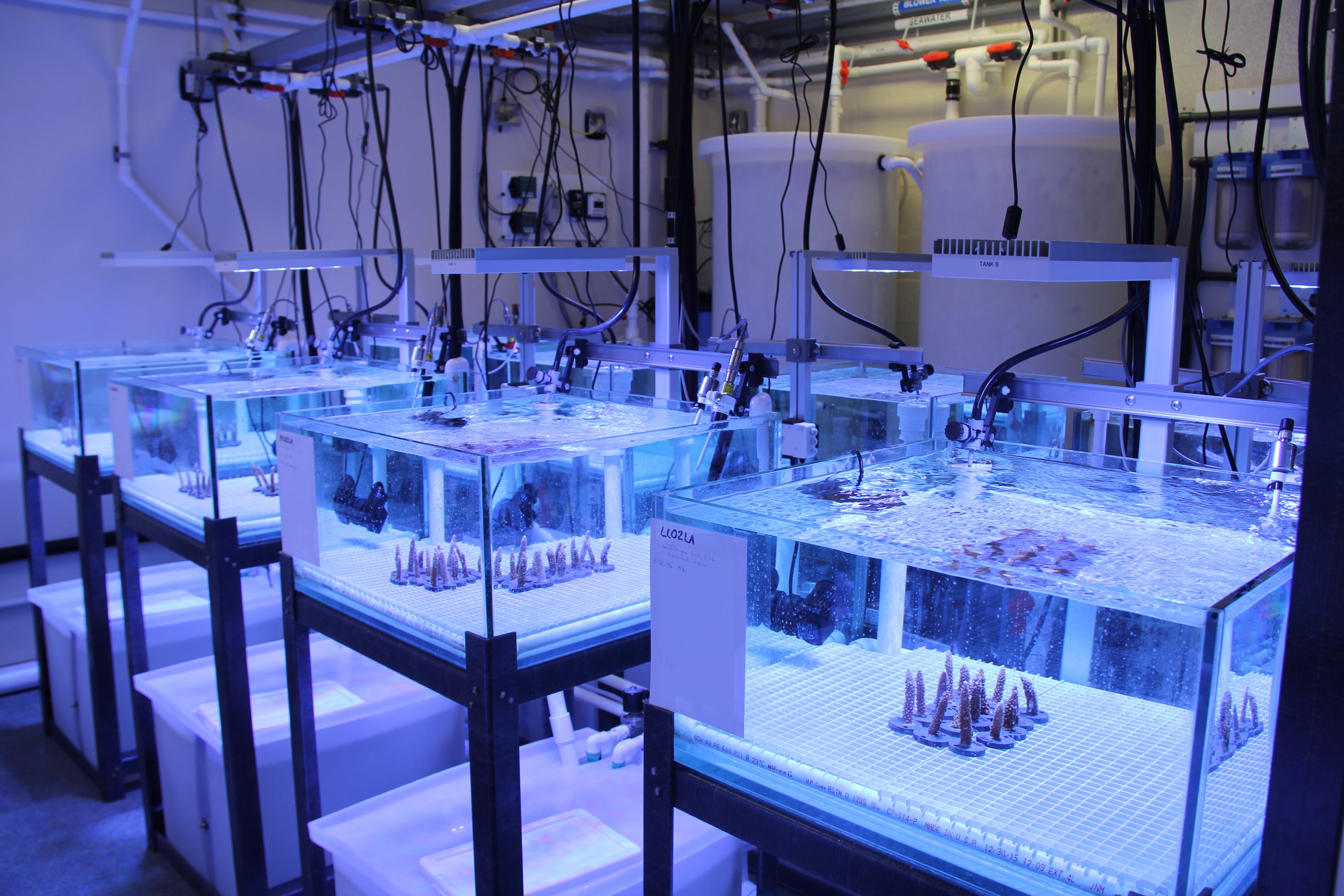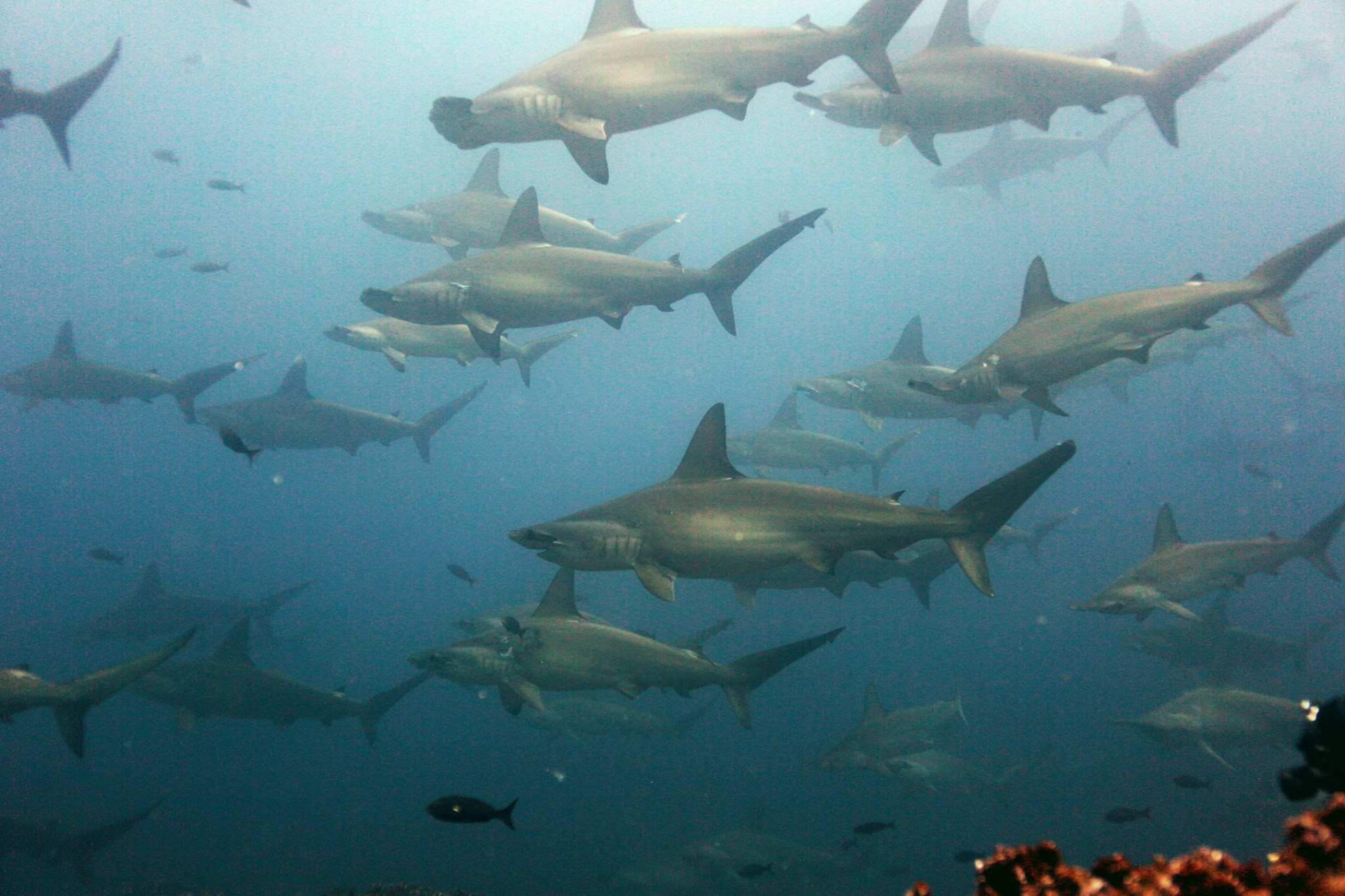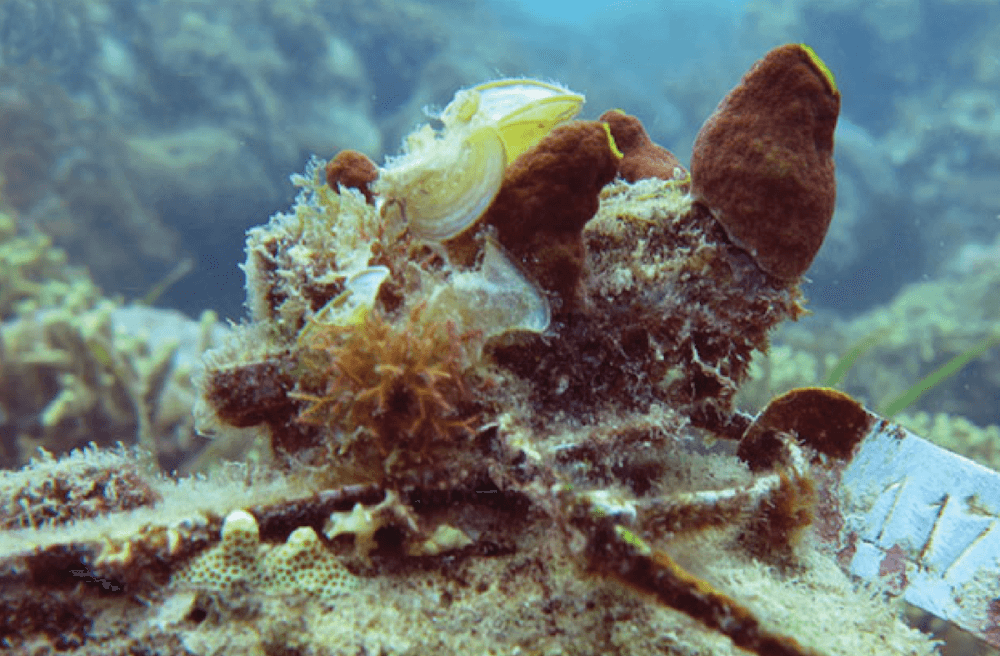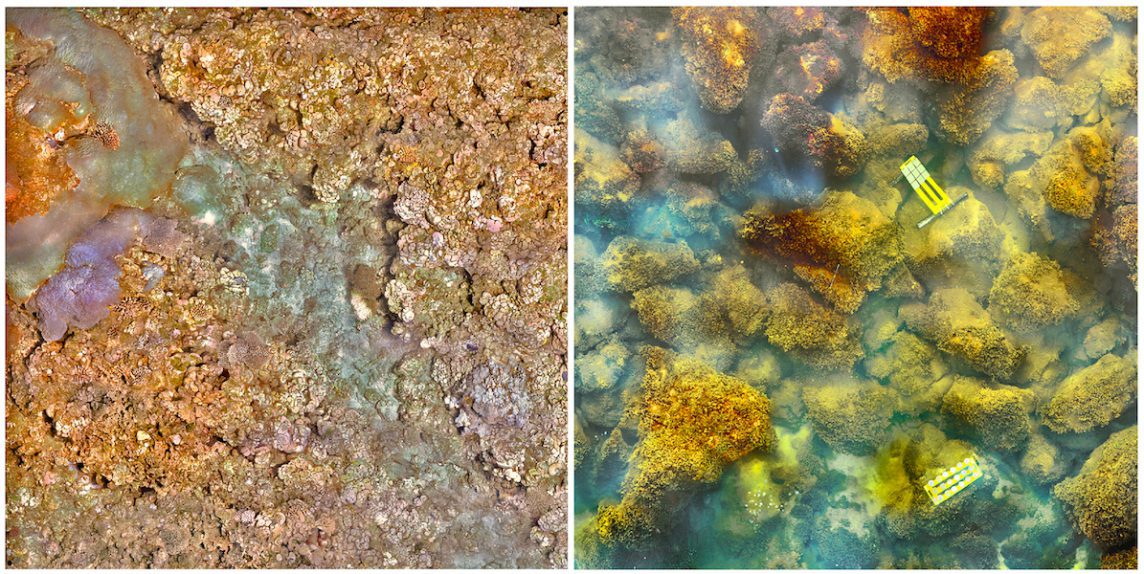Coral researchers at AOML unveiled a new state of the art experimental laboratory this spring at the University of Miami’s Rosenstiel campus. The new “Experimental Reef Laboratory” will allow NOAA scientists and colleagues to study the molecular mechanisms of coral resiliency. Modeling studies indicate that thermal stress and ocean acidification will worsen in the coming decades. Scientists designed the Experimental Reef Laboratory to study the combined effect of these two threats, and determine if some corals are able to persist in a changing environment.
Galapagos Islands: A Telling Study Site for Coral Reef Scientists
Coral scientists recently traveled to the Galapagos Islands to document coral reef health following the 2016-17 El Niño Southern Oscillation event (ENSO), which bathed the region in abnormally warm waters. Historically, these events have triggered coral bleaching and large-scale mortality, as seen in response to ENSO events of 1982-83 and 1997-98. Interestingly, these same reefs exhibited minimal bleaching in response to this most recent event. Scientists are determining whether this response is due to differing levels of heat stress, or an increased tolerance to warm water in the remnant coral communities.
Study shows ocean acidification is two-front assault on coral reefs
The study, published in the Proceedings of the Royal Society B, measured changes in the reef framework in several naturally high-carbon dioxide settings near Papua New Guinea. For the first time, scientists found increased activity of worms and other organisms that bore into the reef structure, resulting in a net loss of the framework that is the foundation of coral reef ecosystems.
Volcano Spewing Carbon Dioxide Drives Coral to Give Way to Algae
The new research published online August 10 in Nature Climate Change provides a stark look into the future of ocean acidification – the absorption by the global oceans of increasing amounts of human-caused carbon dioxide emissions. Scientists predict that elevated carbon dioxide absorbed by the global oceans will drive similar ecosystem shifts, making it difficult for coral to build skeletons and easier for other plants and animals to erode them.



